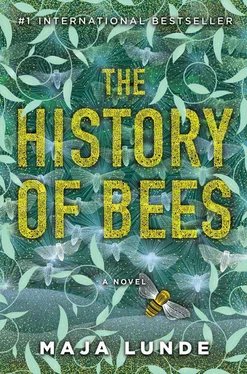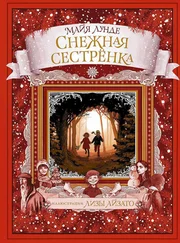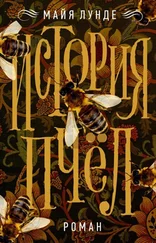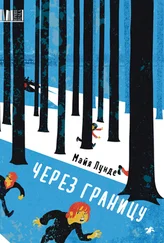Although… I couldn’t remember that I’d behaved like that. I learned to read when I was three. I picked up the characters on my own, surprising the teacher when I skillfully read fairy tales for myself, but never for the other children. I stayed away from them. My parents were amazed spectators on the sidelines, letting me read fairy tales, simple stories for children, but never daring to challenge me with other texts. But at school they noticed. The teachers gave me the opportunity to read books when the others were outside, presented me with what they had of teaching programs, texts and choppy films. Much of it stemmed from the time before The Collapse, from the time before the democracies fell, before the world war that followed, when food became a commodity bestowed upon only a select few. At that time, the production of information was so enormous that nobody had full oversight any longer. Trails of words stretched as far as the Milky Way. Expanses the size of the sun’s surface, made up of pictures, maps, illustrations. Time attached to film, time equivalent to millions of human lives. And technology had made everything available. Availability was the mantra of that period. Human beings were at all times logged on to all of this information with increasingly more advanced communication tools.
But The Collapse also affected the digital networks. In the course of three years they had completely disintegrated. All human beings had left were the books, choppy-quality DVDs, worn-out videotapes, scratched compact discs containing outdated software and the ancient, deteriorating landline network.
I devoured the dog-eared old books and choppy films. Read and remembered everything, as if the books and films made a precise imprint in my memory.
I was ashamed of my knowledge because it made me different. Several of the teachers tried to speak with my parents about how I was a gifted child, had abilities, but during these conversations they smiled shyly, would rather hear about normal things, like whether I had any friends, was good at running, climbing, arts and crafts. All of the areas in which I was not successful. But my shame was gradually consumed by my hunger for learning. I studied the language in depth, learned that every single thing and feeling did not have a single word or description, but many. And I learned about our history. About the mass death of pollinating insects, about the rising of the ocean, the temperature increase, about nuclear power accidents and about the former superpowers, the US and Europe, who had lost everything in the course of a few years, who had not managed to adapt and were now living in the most abject poverty, with a population reduced to a fraction and food production consisting only of wheat and corn. While here, in China, we had coped. The Committee, the Party’s highest council, our country’s efficient government, had led us through The Collapse with a hard hand and a series of decisions that the people often didn’t understand, but had no opportunity to question. All of this I learned. And I just wanted to keep going. To have more and more. I wanted to fill up on knowledge, but without reflecting upon what I learned. It wasn’t until I came upon a tattered printout of The History of Bees that I stopped. The translation from English was clumsy and artless, but the book nonetheless intrigued me. It was published in 2037, a few years before The Collapse became a fact and pollinating insects were no longer to be found on earth. I brought it to show my teacher, shared with her the pictures of beehives and detailed drawings of bees. It was the bees I was most interested in. The queen bee and her children, the latter no more than tiny larvae in the cells of the hive, and all of the golden honey with which they surrounded themselves.
The teacher had never seen the book before, but was, like myself, fascinated. She stopped at passages of rich text to read out loud to me. She read about knowledge. About acting against one’s instincts, because one knows better, about how in order to live in nature, with nature, we must detach ourselves from the nature in ourselves. And about the value of education. Because this was what education was actually about, defying the nature in oneself.
I was eight years old and only understood a small portion. But I understood my teacher’s reverence, that the book had moved her. And I understood the part about education. Without knowledge we are nothing. Without knowledge we are animals.
After that I became more focused. I did not want to learn solely for the sake of learning, I wanted to learn to understand. I soon advanced far beyond the level of the others in my class and was the youngest in the school to become a Young Pioneer in the Party and was allowed to wear the Scarf. There was a banal kind of pride in this. Even my parents smiled when the red piece of cloth was tied around my neck. But first and foremost the knowledge made me richer. Richer than the other children. I was not beautiful, not athletic, not good with my hands or strong. I could not excel in any other fields. In the mirror an awkward girl stared back at me. The eyes were a little too small, the nose a little too big. That ordinary face revealed nothing about what she was carrying—something golden, something that made every single day worth living. And that could be a means of getting away. By the age of ten I had already outlined the possibilities. There were schools in other parts of the country, one day’s journey away, which would accept me when I turned fifteen, the age when I was actually supposed to start working out in the fields. The school supervisor helped me to find out how to apply. She thought I’d have a good chance of being accepted. But it would be expensive. I spoke with my parents but got nowhere; they grew anxious, looked at me as if I were a strange creature they didn’t understand and didn’t even like. The school supervisor also tried talking to them, I never found out what she said, but the only effect it had was to make my parents even more resolved. They had no money, and they weren’t willing to save. I was the one who would have to give in, they felt, I was the one who would have to settle down, stop “dreaming foolish dreams.” But I was unable to. Because this was who I was. And always would be.
I started at the sound of Wei-Wen’s laughter. He laughed a loud, warbling laugh in the bathroom and the acoustics in there amplified the sound. “No, Daddy! No!”
He laughed as Kuan tickled him and gave his soft tummy a raspberry kiss.
I stood up. Put the plate in the sink. Walked towards the bathroom door and stood there listening. When I heard Wei-Wen’s laughter I felt the urge to record it, so I could play it back for him when he grew up and acquired a deep voice.
All the same it didn’t make me smile.
I put my hand on the latch, pushed the door open. Wei-Wen was lying on the floor while Kuan yanked and pulled at one of his trouser legs. He pretended that the trousers were fighting against him, did not want to come off.
“Can you hurry up a bit?” I said to Kuan.
“Hurry up? That’s impossible with these obstinate trousers!” Kuan said and Wei-Wen laughed.
“Now you’re just winding him up.”
“Listen here, trousers, now you have to stop fooling around!”
Wei-Wen laughed even more.
“He’s getting too wild,” I said. “It will be impossible to put him to bed.”
Kuan did not reply, looked away, but followed my instructions. I went out and closed the door behind me. In the kitchen I quickly did the dishes.
Then I took out my pen and paper. A brief fifteen minutes more, that much he could stand.
She often sat there, beside my bed, with her head bowed over a book, turning the pages slowly, reading with concentration. My daughter Charlotte was fourteen years old and should have many other things to keep her busy besides seeking out my mute company. Still she came more and more frequently. I distinguished day from night through her presence, and her perpetual reading.
Читать дальше









